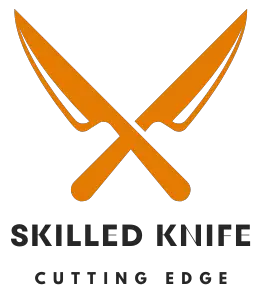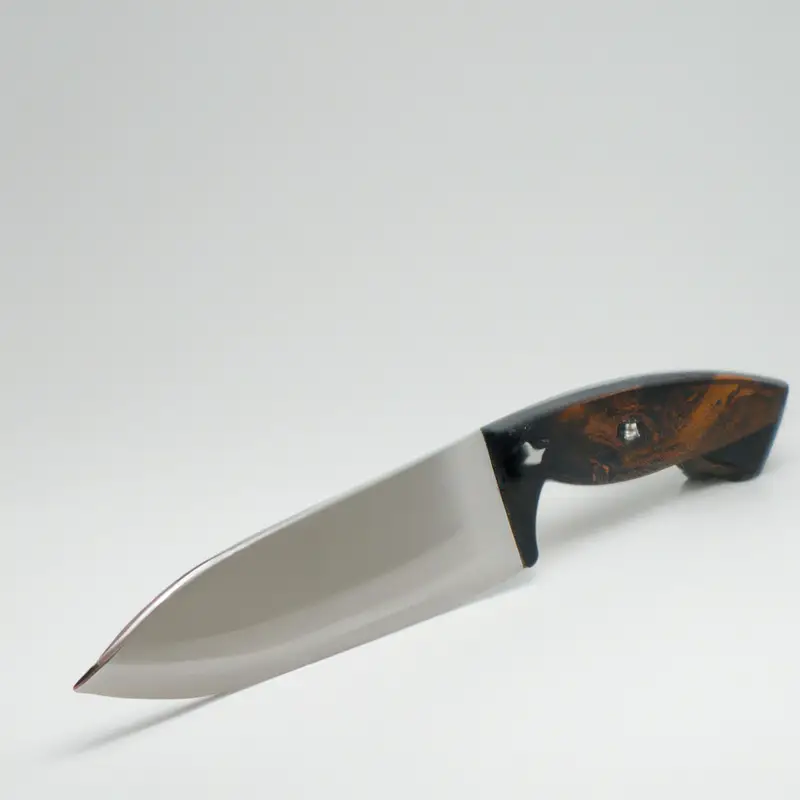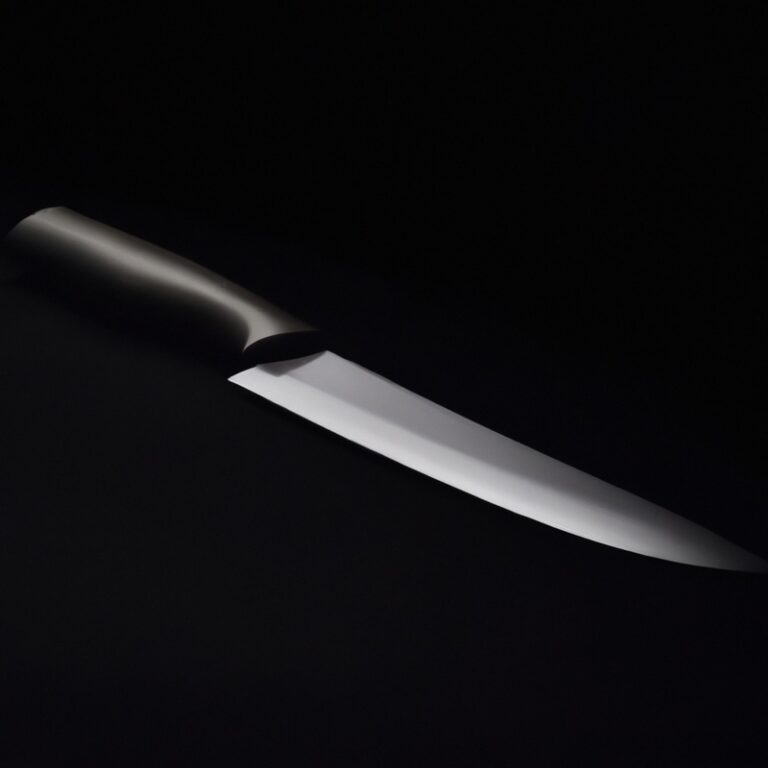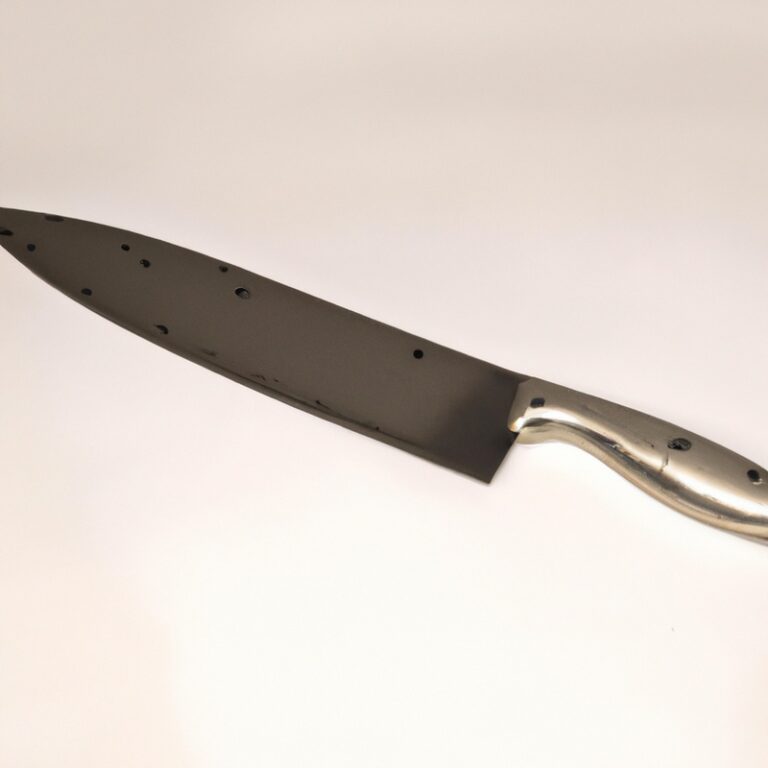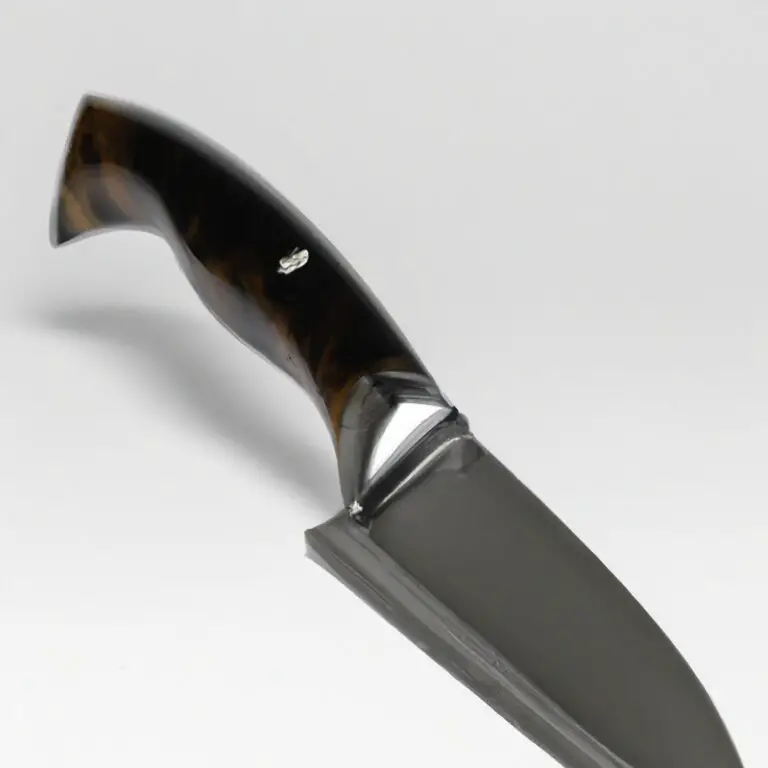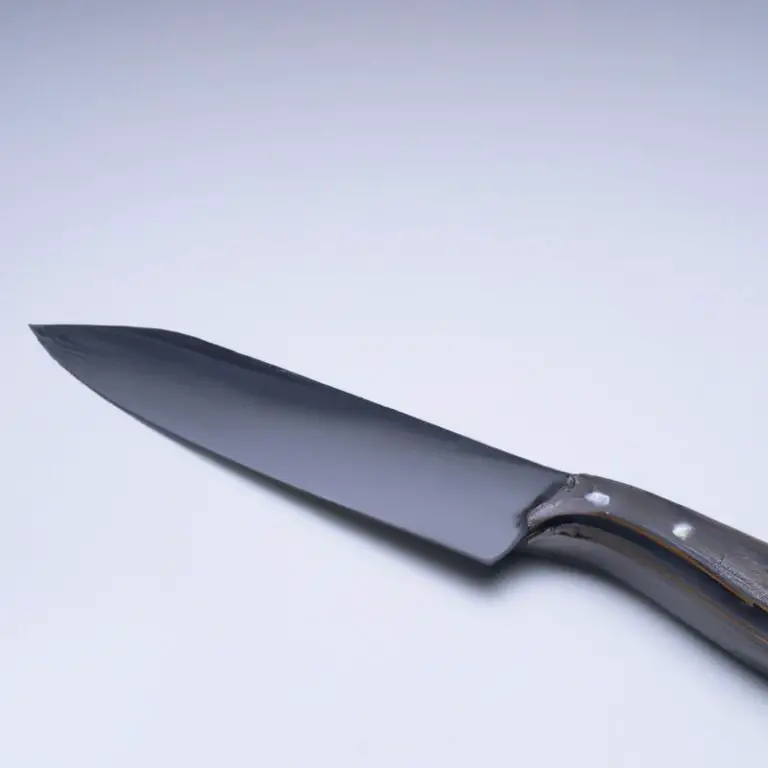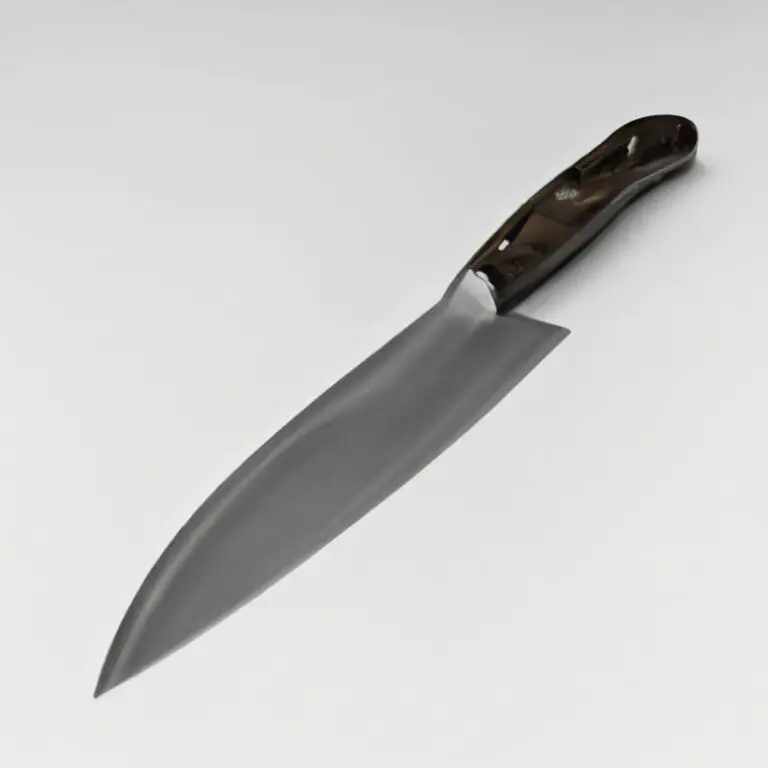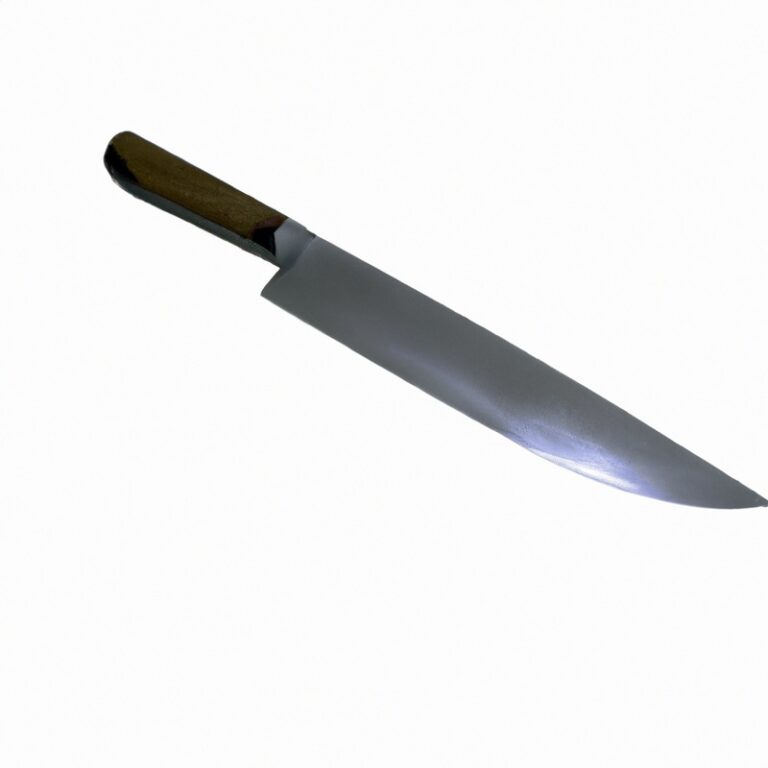How Does Knife Steel Influence Corrosion Resistance In Outdoor Knives?
Key Takeaways:
- High carbon steels offer better corrosion resistance in outdoor knives.
- Stainless steels contain a higher percentage of chromium, providing superior corrosion resistance.
- Blade geometry and edge profile can also influence corrosion resistance in outdoor knives.
- Proper maintenance, such as cleaning and drying, is crucial to prevent corrosion in outdoor knives.
How often have you found yourself mesmerized by the sleek look and sharp edge of a trusty outdoor knife, only to have it tarnished by unsightly rust after a few uses? It’s frustrating, isn’t it?
That’s where knife steel comes into play.
In this blog, we’ll delve into the intricate world of knife steel and its remarkable influence on corrosion resistance. From understanding the basics of corrosion to exploring the different types of steel and their unique characteristics, we’ll equip you with the knowledge you need to choose and maintain an outdoor knife that stands the test of time.
So, grab a seat and let’s dive in!
| Steel Type | Corrosion Resistance |
|---|---|
| Stainless Steel | More resistant to corrosion |
| Carbon Steel | Less resistant to corrosion |
| High Carbon Stainless Steel | Moderate resistance to corrosion |
What is knife steel and why is it important for outdoor knives?
Definition of knife steel
Knife steel refers to the material used to make the blade of a knife. It is a crucial factor that determines the knife’s performance, strength, and durability.
Knife steel can be made from various alloys, such as stainless steel or high carbon steel, each with its own unique characteristics.
The choice of knife steel influences factors such as edge retention, hardness, and corrosion resistance. The composition of the steel, including the amount of carbon and other elements, plays a significant role in determining its quality.
Importance of knife steel for outdoor knives
Knife steel is incredibly important for outdoor knives because it directly affects their performance and durability. The type of steel used determines the knife’s ability to hold an edge, resist corrosion, and withstand tough tasks.
High-quality steel ensures that your knife can withstand harsh outdoor conditions and maintain its sharpness for longer periods.
Different types of steel have varying levels of corrosion resistance, so choosing the right steel is crucial for ensuring that your outdoor knife remains in top shape throughout your adventures.
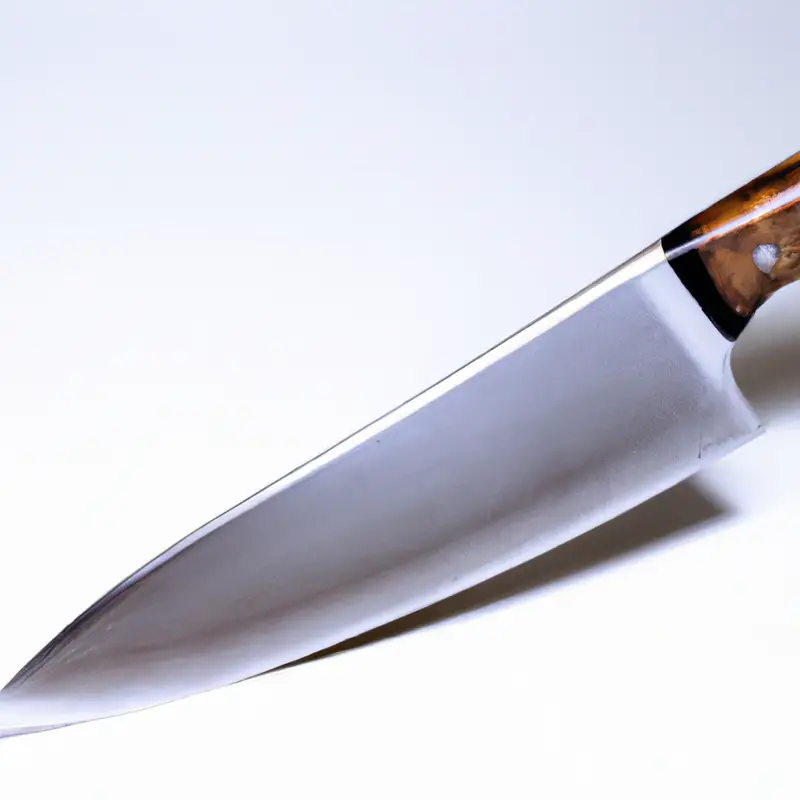
Understanding corrosion resistance in outdoor knives
What is corrosion and why is it a concern?
Corrosion is the natural process of metal gradually deteriorating due to exposure to moisture, oxygen, and other environmental factors.
This can result in the formation of rust, tarnish, or other unwanted substances on the surface of the metal.
Corrosion is a concern because it weakens the structural integrity of the metal, making it less reliable and durable.
In the case of outdoor knives, corrosion can compromise their performance, aesthetic appeal, and even pose a risk to users if not addressed.
Therefore, understanding corrosion and taking steps to prevent it is important in maintaining the longevity and effectiveness of outdoor knives.
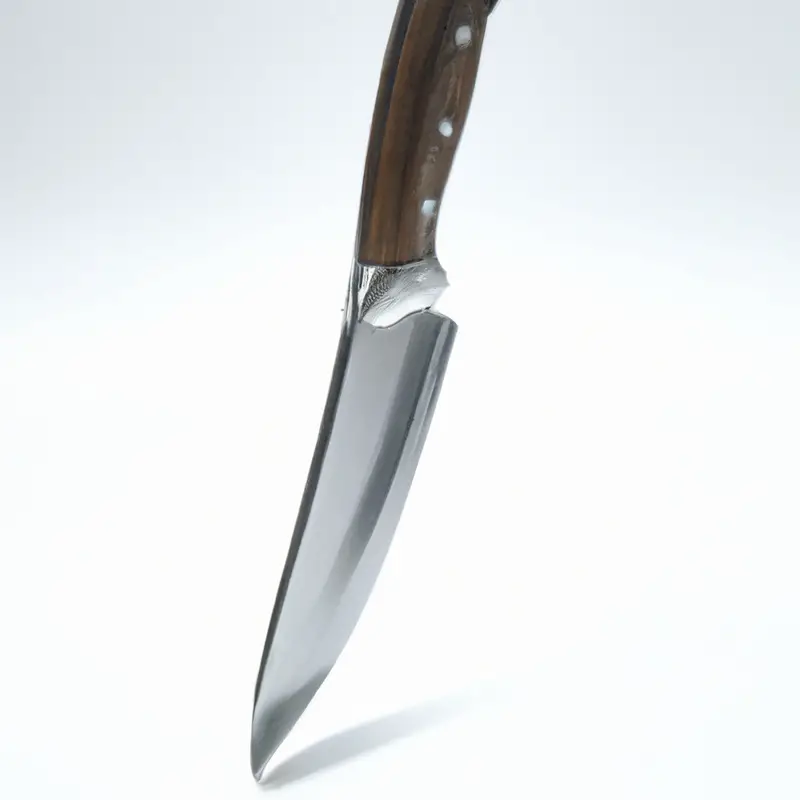
Factors affecting corrosion resistance in knives
Several factors can influence the corrosion resistance of knives. Here are some key factors to consider:
- Material Composition: The type of steel used in the blade greatly affects its corrosion resistance. Stainless steel is known to be highly resistant to corrosion, while high carbon steel may be more susceptible.
- Surface Finish: A smooth, polished surface can help reduce the formation of corrosion, as it minimizes the opportunity for moisture and contaminants to accumulate.
- Environment: The conditions in which the knife is used play a significant role. Exposure to saltwater, high humidity, and harsh chemicals can accelerate corrosion.
- Maintenance: Proper cleaning and drying after use, as well as regular oiling, can help prevent corrosion. Neglecting maintenance can lead to rust formation.
- Usage Patterns: Knives that are frequently exposed to moisture or used for acidic food preparation may have higher corrosion risk.
Understanding these factors will help you select a knife with the appropriate corrosion resistance for your specific needs.
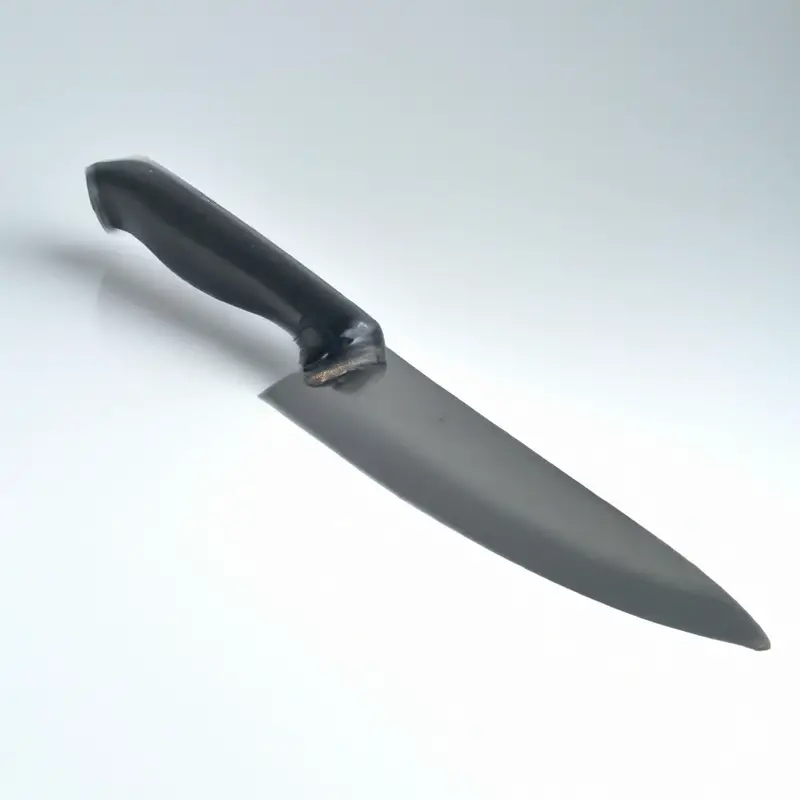
The role of knife steel in corrosion resistance
The role of knife steel in corrosion resistance is significant.
The type of steel used in a knife greatly affects its ability to resist corrosion.
Some steels, like stainless steel, contain chromium, which forms a protective layer against rust.
High carbon steels, on the other hand, are more prone to rust but can be more durable.
Damascus steel is known for its unique patterns but may require more care to prevent corrosion.
Choosing the right knife steel is crucial for ensuring long-term corrosion resistance.
Different types of knife steel and their corrosion resistance
Stainless steel: Features and benefits
Stainless steel is a popular choice for outdoor knives due to its many features and benefits.
It offers excellent corrosion resistance, making it ideal for use in harsh environments.
Stainless steel is also highly durable and can withstand heavy use without losing its sharpness.
Additionally, it is easy to clean and maintain, requiring minimal effort to keep it in optimal condition.
With its resistance to rust and longevity, stainless steel is a reliable option for outdoor enthusiasts.
High carbon steel: Features and benefits
High carbon steel is a popular choice for outdoor knives due to its impressive features and benefits.
Firstly, it is known for its exceptional hardness, which allows for excellent edge retention and durability.
Secondly, high carbon steel knives are easy to sharpen, making them ideal for outdoor enthusiasts who require a keen and precise cutting edge.
Additionally, high carbon steel offers excellent corrosion resistance when properly cared for.
Its ability to withstand tough conditions and maintain its sharpness makes it a reliable choice for any outdoor adventure.
Damascus steel: Features and benefits
Damascus steel is known for its distinctive and beautiful pattern, created by layering different types of steel together. But its appeal goes beyond aesthetics.
Here are some features and benefits of Damascus steel:
- Strength and durability: Damascus steel is renowned for its exceptional strength and durability. The layering process enhances its toughness and resistance to chipping and breaking.
- Sharpness and edge retention: Damascus steel blades can hold a sharp edge for a longer period compared to other types of steel. This makes them ideal for outdoor activities like hunting and camping.
- Corrosion resistance: Damascus steel typically has good corrosion resistance, thanks to the combination of different steel types. However, it’s important to note that proper care and maintenance are still necessary to prevent rusting.
- Versatility: Damascus steel is versatile, making it suitable for a wide range of knives, from kitchen knives to hunting knives and beyond.
- Unique aesthetics: The distinctive wavy pattern and different textures in Damascus steel are visually appealing, creating a unique and eye-catching look.
Whether you’re looking for a durable and high-performance knife or simply appreciate the beauty of a Damascus steel blade, it’s definitely worth considering for your outdoor adventures. Just remember to care for and maintain it properly to prolong its lifespan and corrosion resistance.
Other knife steels and their corrosion resistance characteristics
Other knife steels, apart from stainless steel, high carbon steel, and Damascus steel, also possess unique corrosion resistance characteristics.
For example, H1 steel, which contains a high amount of nitrogen, offers exceptional rust resistance even in saltwater environments.
VG-10 steel combines corrosion resistance with excellent sharpness and edge retention.
N690 steel is known for its high corrosion resistance and toughness, making it a popular choice for outdoor knives.
Additionally, CPM-S30V steel provides a good balance of corrosion resistance, edge retention, and toughness.
These alternative knife steels offer a range of options for users looking for specific corrosion resistance properties.
Factors to consider when selecting a knife steel for corrosion resistance
Types of environments and their effect on corrosion
Different environments can have a significant impact on the corrosion of outdoor knives.
- Humid Environments: High humidity can accelerate corrosion, especially in knives that are not made from corrosion-resistant steel. The moisture in the air interacts with the metal, leading to rust formation.
- Saltwater Environments: Saltwater contains corrosive salt ions that can rapidly deteriorate the metal on a knife. Stainless steel is the best option for knives used in saltwater environments due to its resistance to saltwater corrosion.
- Wet Environments: Constant exposure to water, whether from rain, rivers, or wet vegetation, can increase the chances of corrosion. A knife with good corrosion-resistant properties is essential in these situations.
- Marine Environments: In addition to saltwater, marine environments have the added challenges of exposure to seaweed, salt spray, and other marine elements. Again, corrosion-resistant steels like stainless steel are ideal for knives used in these settings.
- Dry Environments: While dry environments may seem harmless, there is still a risk of corrosion due to dust, dirt, and debris accumulating on the blade. Regular cleaning and maintenance are crucial to prevent corrosion in these conditions.
Maintenance and care to prevent corrosion
To prevent corrosion in your outdoor knife, regular maintenance and care are essential.
Here are some tips to keep your knife corrosion-free:
- Clean your knife thoroughly after each use, removing any dirt or debris.
- Dry the knife completely to prevent moisture from sitting on the blade.
- Apply a thin coat of oil to the blade to create a protective barrier against moisture.
- Store your knife in a dry environment, away from moisture and humidity.
- Regularly inspect your knife for any signs of rust or corrosion, and address them promptly.
Remember, proper maintenance and care will help extend the lifespan of your outdoor knife and keep it in excellent condition for your adventures.
Budget considerations for different types of knife steel
When it comes to selecting a knife steel for corrosion resistance, budget is an important factor to consider. Different types of knife steel come at different price points, so it’s important to find a balance between your budget and the level of corrosion resistance you require.
Stainless steel is a popular choice for its affordability and decent corrosion resistance.
High carbon steel is another budget-friendly option, but it requires more maintenance to prevent rust. Damascus steel tends to be more expensive due to its intricate patterns and uniqueness.
It’s important to research and compare prices to find a knife steel that fits both your budget and corrosion resistance needs.
Best practices for maintaining corrosion resistance in outdoor knives
Cleaning and drying techniques after use
After using your outdoor knife, it’s important to properly clean and dry it to maintain its corrosion resistance. Here are some tips:
- Rinse the knife with warm water and mild soap to remove any dirt or debris.
- Use a soft brush or cloth to gently scrub the blade and handle.
- Pay special attention to any crevices or joints where moisture can collect.
- Avoid using abrasive cleaners or scrubbing too vigorously, as this can damage the knife’s finish.
- Once cleaned, thoroughly dry the knife with a clean towel.
- Ensure that no moisture remains on the blade or handle, as this can promote rust.
- If needed, you can use compressed air or a hairdryer on low heat to ensure complete drying.
- Store the knife in a dry location, preferably in a protective sheath or case.
Proper storage to minimize exposure to moisture
To minimize exposure to moisture and protect your outdoor knife from corrosion, proper storage is key.
Here are some tips to help you maintain the integrity of your knife steel:
- Use a protective sheath or case: When not in use, always store your knife in a sheath or case specifically designed for it. This safeguards the blade from direct contact with moisture and humidity in the air.
- Choose a dry and controlled environment: Opt for a storage location that is dry, cool, and well-ventilated. Avoid areas prone to high humidity, such as basements or bathrooms, as they can accelerate corrosion.
- Avoid storing knives in leather sheaths: Leather sheaths can trap moisture and hold it against the blade, increasing the risk of corrosion. Instead, consider using a synthetic or fabric sheath that allows for better airflow.
- Regularly inspect and clean your knife: Before storage, thoroughly clean your knife to remove any dirt or debris. Inspect the blade for signs of moisture or rust, and address any issues immediately.
- Apply a thin layer of protective oil: After cleaning, apply a light coating of oil to the blade and other metal parts. This helps create a barrier against moisture and prevents rust from forming.
By implementing these proper storage practices, you can minimize exposure to moisture and maximize the corrosion resistance of your outdoor knife.
Remember, taking care of your knife steel will ensure it remains in prime condition for your outdoor adventures.
Regular maintenance and oiling to prevent rust
Regular maintenance and oiling are essential for preventing rust on outdoor knives.
After each use, clean the knife thoroughly with mild soap and warm water.
Dry it completely to remove any moisture.
Apply a thin layer of oil to the blade and handle, using a clean cloth or a cotton swab.
This will create a protective barrier against moisture and corrosion.
Store your knife in a dry place, away from humidity.
Remember to regularly inspect and reapply the oil as needed to ensure maximum rust resistance.
Final Verdict
Knife steel plays a critical role in determining the corrosion resistance of outdoor knives. Understanding the factors that affect corrosion, such as environmental conditions and maintenance practices, is essential in selecting the right knife steel.
Stainless steel, high carbon steel, and Damascus steel are popular options, each with their own unique features and benefits.
By considering the type of environment and budget constraints, individuals can make an informed decision in choosing a knife steel that will withstand corrosion effectively. Lastly, implementing proper cleaning, drying, and maintenance practices will greatly contribute to preserving the corrosion resistance of outdoor knives.
As an expert in this field, I have shared valuable insights that will help readers make informed decisions and maintain their knives for long-lasting performance.
